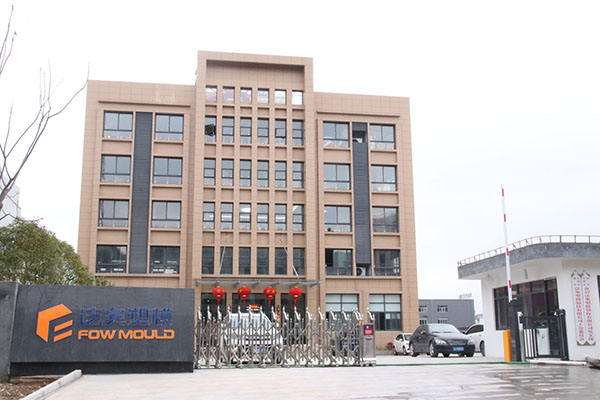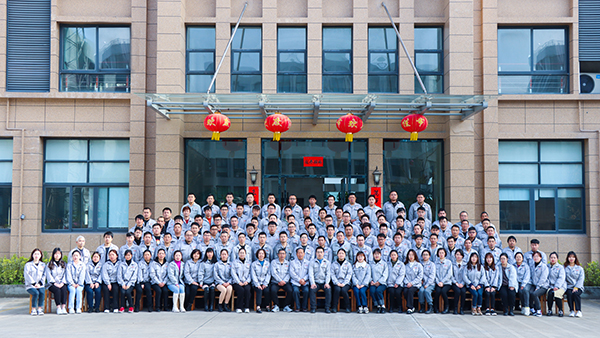Are you still looking for excellent PS injection molding companies in China? Then you’ve come to the right place!
PS injection molding is widely used in various industries such as automotive, pharmaceuticals, and packaging. With its efficiency, cost-effectiveness, and flexibility, PS injection molding has become an indispensable part of countless product manufacturing processes that we rely on daily.
Here is a list of the top 5 PS injection molding companies.
Top 5 PS Injection Molding Companies in China
1.Fow Mould
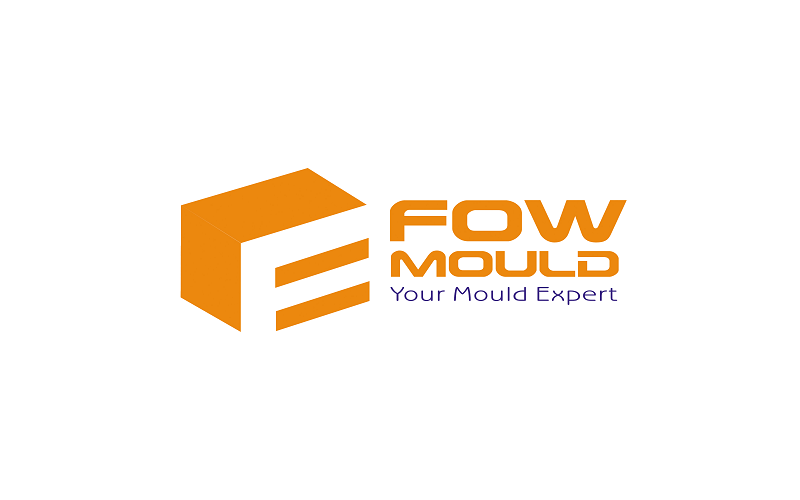
Year Established: 1978
Location: Zhejiang, China
Industry: Manufacturing
FowMould is a Chinese plastic mold manufacturer with over 40 years of experience in the injection molding industry. It was established in 1978 and specializes in producing injection molds for various materials, including polystyrene (PS).
The company offers a comprehensive service, from product and mold design to manufacturing, testing, and shipping. They have a reputation for high-quality molds, fast delivery, and excellent customer service.
2.JasonMould Industrial Co., Ltd
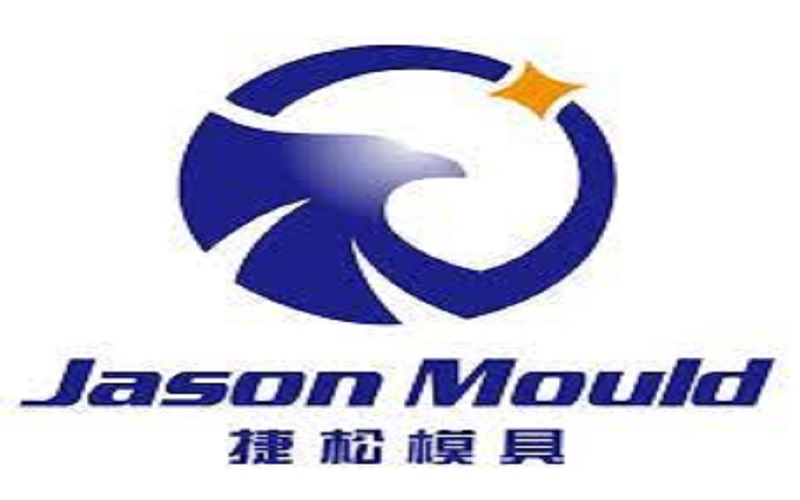
Year Established: 2010
Location: GuangDong, China
Industry: Manufacturing
JasonMould Industrial Company Limited, established in October 2010, is a larger scale private manufacturing enterprise with perfect management system, precision molds and plastic products with domestic and foreign famous customers.
For polystyrene injection molding, Jason Mold has extensive injection molding experience, advanced machinery and skilled staff, allowing them to handle both small and large production runs, catering to a wide range of industries.
3.Deep Mould Co., Ltd
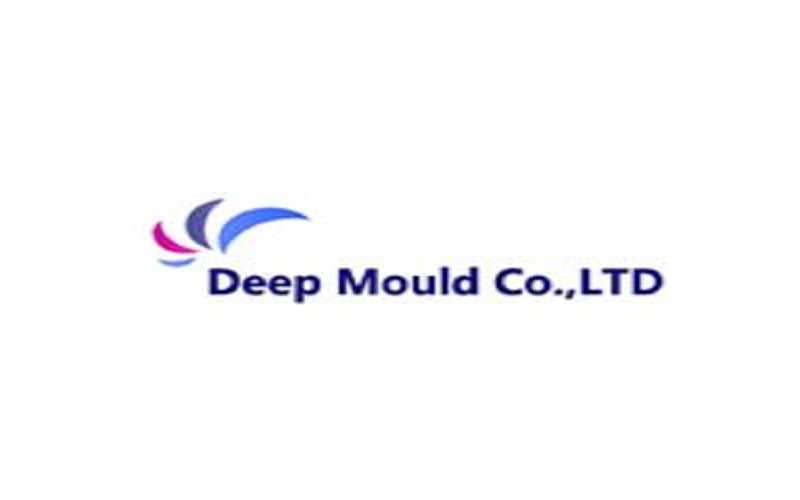
Year Established: 2008
Location: GuangDong, China
Industry: Manufacturing
Certification: ISO 9001:2015
Deep Mould Co. LTD was founded in 2008, it is one of the best toolings manufactures in Dongguan, China.Deep Mould specializes in high-quality tooling area.
Deep Mold provides comprehensive and complete project management from concept to prototyping to product, for PS injection molding, and their team has extensive manufacturing experience to deliver quality injection molded products.
4.Up Mould
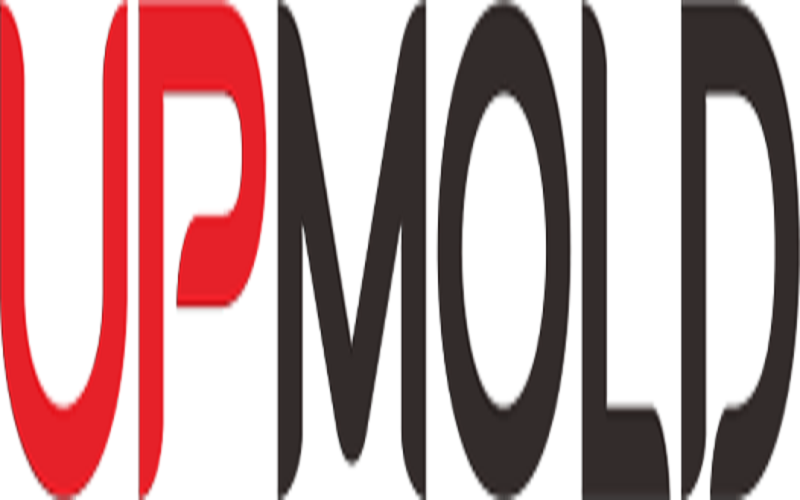
Year Established: 1998
Location: GuangDong, China
Industry: Manufacturing
Certification: ISO:9001:2015
UP MOLD is a manufacturer specializing in the custom production of plastic injection molds and injection molded products for electronic engineering and household appliances. The company’s core business strategy is to provide one-stop and comprehensive services for product development, design, mold making, molding, assembly and packaging
Upmold has a team of experienced professionals to create high quality products for our customers. In addition to the technical force, the company also has high-precision and large-scale production facilities. upmold has a manufacturing center in China and an injection molding plant in Indiana, USA.
5.Klarm Mould Limited
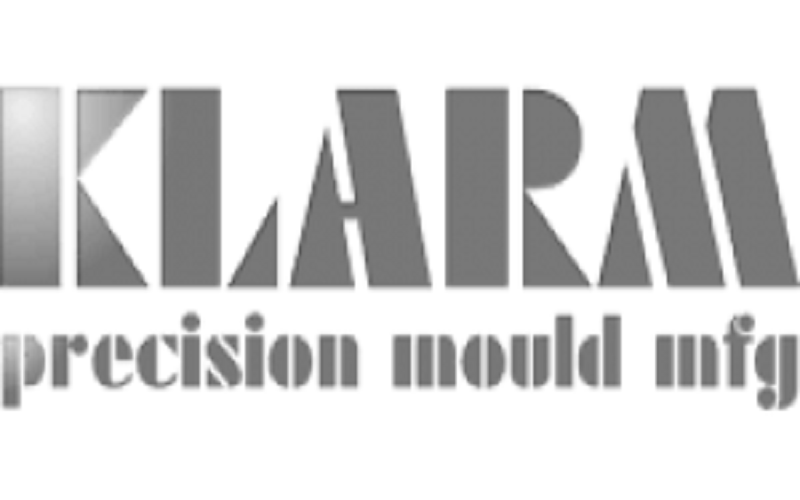
Year Established: 2005
Location: Guangzhou, China
Industry: Manufacturing
Klarm Corporation is a professional plastic injection molding manufacturer to meet the needs of micro and macro molding manufacturers. Located in Guangzhou, China, the company provides quality injection molding services to customers worldwide.
With over 11 years of experience and state-of-the-art molding equipment, we specialize in the manufacture of precision tolerance molds and large, complex injection molds for automotive, electronics, telecommunications, medical devices, home appliances, sporting goods, and general industrial OEM/ODM applications.
In recent years, PS injection molding has become an economically efficient method that can mass-produce identical parts with consistent quality. It is widely used in various industries such as automotive, electronics, and medical equipment manufacturing.
In this blog post, we will provide a detailed introduction to the characteristics of PS materials, the specific process and molding conditions of PS injection molding. This will help you gain a deeper understanding of the widespread application of PS injection molding in injection mold manufacturing.
What Is PS Plastic Material?
Polystyrene, commonly known as PS, is a plastic material widely used in the injection molding process. It is a cost-effective and versatile thermoplastic that can be molded into various shapes and sizes. Due to its durability and ease of processing, PS plastic is extensively used in disposable tableware, containers, packaging materials, and other products.
Furthermore, this material can be formulated into transparent, translucent or opaque colors, making it suitable for different applications. With its unique properties, PS plastic has become a popular choice for manufacturing various consumer goods and industrial products.
One of the most commonly used methods for producing PS plastic products is PS injection molding, which involves melting the material and injecting it into a mold to create various shapes of products.
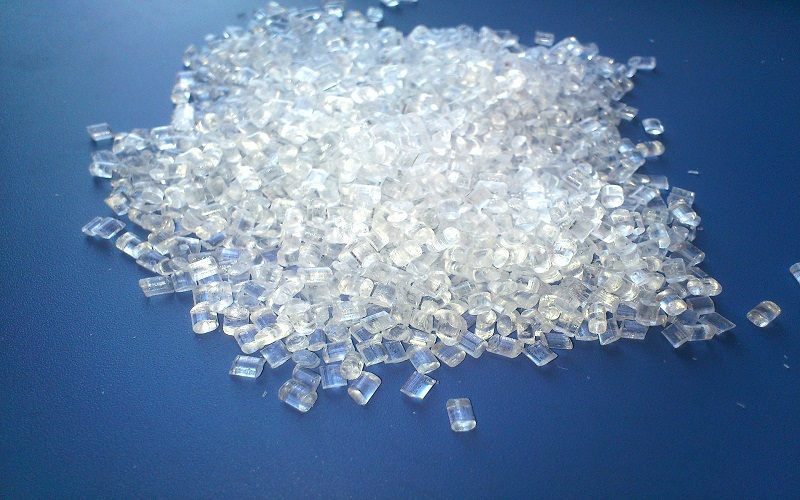
Different Types of PS Plastic Material
Polystyrene, or PS, is a common type of plastic material that has a range of uses due to its unique properties. Each of these has distinct properties that make them suitable for various applications in different industries.
There are three main types of PS injection molding: general purpose polystyrene (GPPS), high-impact polystyrene (HIPS), and expandable polystyrene (EPS).
GPPS, also known as crystal polystyrene, is transparent and is commonly used in packaging and disposable tableware.HIPS has greater impact resistance and is commonly used in toys, appliances and electronics.EPS has a foam structure and is ideal for insulation, packaging and cushioning.
Each PS plastic has unique properties that make it popular for a variety of applications in a wide range of industries. Injection molding technology can accurately and quickly produce these types of PS plastics, making them a readily available material for a variety of uses.
Through the use of PS injection molding technology, these plastic materials can be molded into complex shapes and sizes for various purposes such as food packaging, electronic casings, and medical devices. Understanding the differences between each type of PS plastic material can help industries and consumers choose the most suitable material for their needs.
The Purposes of PS Injection Molding
In the manufacturing of plastic parts, PS injection molding is one of the most popular and efficient methods. The notable feature of this process is that it can produce parts with diverse shapes, precise dimensions, and stable quality.
One of the main purposes of PS injection molding is to be able to produce parts or products in large quantities. Polystyrene is particularly suitable for this purpose because it is relatively inexpensive and easy to mold.
Due to the controllability of the PS injection molding process, it can produce highly consistent parts. This is crucial in many industries with strict requirements for quality and dimensional accuracy.
At the same time, PS injection molding can accurately replicate complex geometric shapes, making it an ideal choice for manufacturing complex polystyrene parts. This is particularly applicable in industries such as electronics, automotive, and consumer goods that require complex and high-precision components.
With the versatility of its craftsmanship, polystyrene injection molding is used to produce a wide range of products. These product categories include disposable cutlery, plastic cups, electronic product casings for food containers, CD cases, and toys. Whether you need to manufacture small and intricate parts or large and simple ones, PS injection molding is a reliable choice that can help you easily achieve your goals.
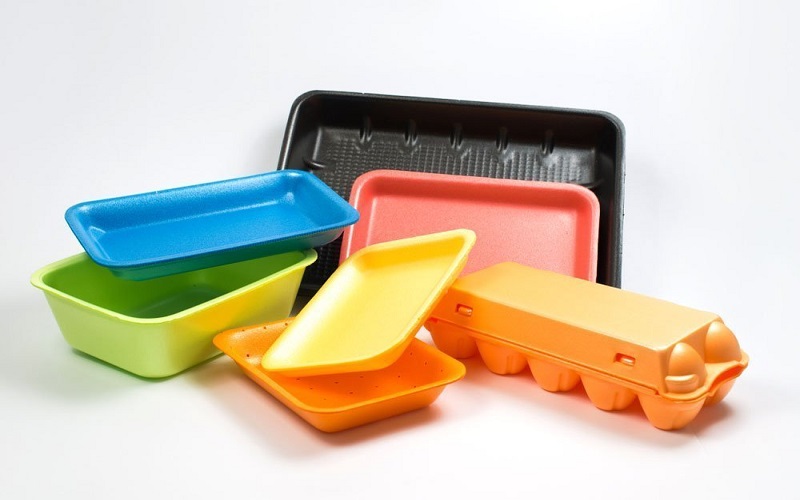
The Key points of PS mold making
The design of the PS mold and its accurate manufacturing are critical to the success of PS injection molding.Making a mold for polystyrene (PS) injection molding involves several key considerations to ensure the process is efficient and the final parts meet the required specifications.
One of the essential components of PS mold making is the selection of the right material. The type of material used can significantly impact the final output quality and performance.
Additionally, the design of the mold and its precise dimensions are crucial for the success of injection molding. PS typically shrinks between 0.2% and 0.8% during cooling. The mold design must account for this shrinkage to ensure the final parts have the correct dimensions.
Another key point to consider is gate design.The gate is the point where molten PS enters the mold, and it can be designed as flat side gating, direct gating, fan-shaped gating, or circular overflow gating.
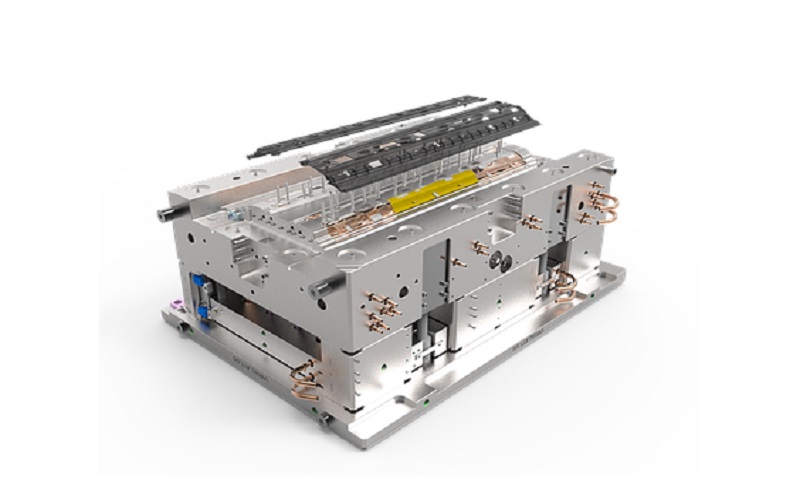
Process characteristics of PS injection molding
The melting point of PS is 166℃, and the recommended processing temperature is generally between 185-220℃. The decomposition temperature is approximately 280℃, so its processing temperature range is relatively wide.
When melting PS, it is important to consider its relatively low viscosity and good flowability. The mold must be carefully designed and sealed to prevent leakage.
Polystyrene exhibits low to moderate shrinkage during cooling, typically around 0.2% to 0.8%. This factor needs to be considered during the design of the mold to ensure the final part meets the desired dimensions.
Due to its low specific heat, PS can quickly solidify once the mold dissipates heat. Its cooling speed is faster than that of general materials, allowing for an earlier demolding time. Both the plasticizing and cooling times are shorter, resulting in a shorter molding cycle time.
In addition, the gloss of PS products increases with the increase in mold temperature, with internal stress of the rubber parts can be immersed in 65 ~ 80 ℃ water tank for 1 ~2 hours, and then slowly cooled to room temperature, you can eliminate internal stress.
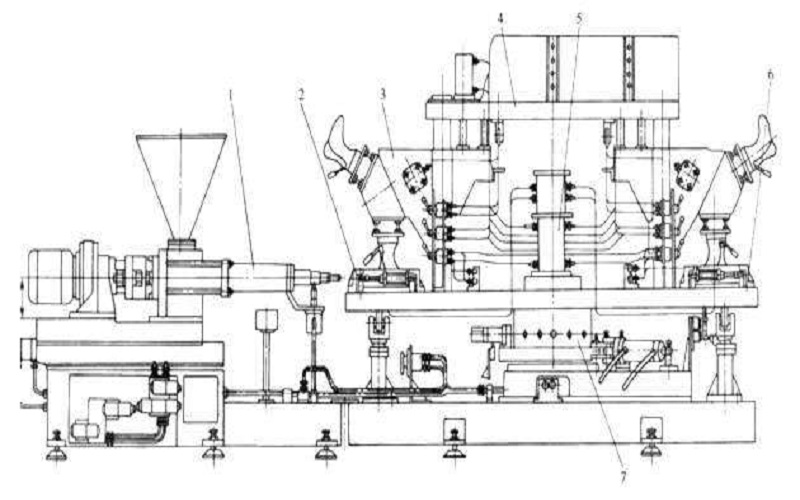
Conditions of PS injection molding
Polystyrene injection molding is a process of injecting molten polystyrene into a mold under high pressure, allowing the material to cool and solidify inside the mold, resulting in a strong and uniform product.
However, in order to ensure the quality of the final product, it is necessary to carefully control certain conditions and make corresponding adjustments during the PS injection molding process, in order to produce high-quality plastic parts that meet customer requirements.
Melt Temperature
Polystyrene usually has a melt temperature between 180°C and 270°C. It’s important not to exceed this range as it can cause the material to degrade.
Mold Temperature
The mold temperature for polystyrene typically ranges between 20°C and 70°C. The exact temperature depends on the specific type of PS used and the desired properties of the final part.
Injection Pressure
Polystyrene has good flowability, so the required injection pressure is generally lower compared to materials with higher viscosity. Typical injection pressures range from 70 to 150 MPa.
PS Injection Molding Conditions
Drying temperature (℃) | 60~75 | Drying time about (hr) | 1 hour (generally not used for drying) |
| Mold temperature(℃) | 20~70 | Residual material volume (mm) | 3~12 |
| Melt temperature (℃) | 180~270 | Back pressure (MPa) | 5~10 |
| Injection pressure (MPa) | 70~150 | Clamping force (ton/in2) | 2 |
| Injection speed | high speed
| Return speed (rpm) | 60~100 |
| Screw type | Standard Screw (Inline Nozzle)
| ||
| Shutdown Handling | just close the feeder and clear the beer. | Shredded material reuse (%) | 0 |
Difference between PS and Other Common Plastic Materials
Polystyrene (PS) is a widely used plastic material due to its combination of strength, durability, and cost-effectiveness. It finds extensive applications in various fields.
Unlike other common plastics, polystyrene has a lower melting point, making it easier to mold. The injection molding process for PS can produce high-precision and repeatable parts with minimal waste.
This makes it an ideal material for manufacturing a wide range of products, from consumer electronics to medical devices, as well as toys and food packaging.
In addition to its excellent molding capabilities, PS also exhibits outstanding impact resistance and temperature resistance. These properties make it the preferred material across industries.
While there are many plastic materials available for selection, few can match the unique performance and manufacturing advantages offered by PS.
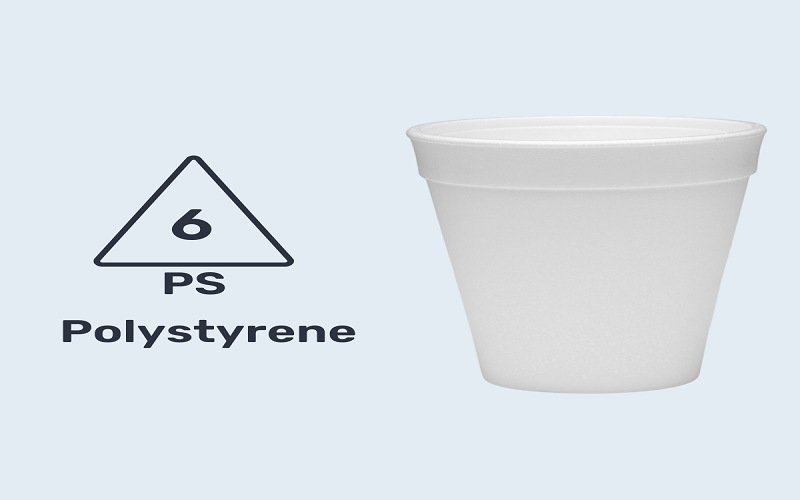
Chemical & Physical Properties of PS Injection Molding
PS injection molding is a complex process that combines the best of chemistry and engineering to create durable, high-quality products.PS plastics, also known as polystyrene, have unique physical and chemical properties that make them well suited for injection molding.
The density of polystyrene is relatively low, ranging from 1.04 to 1.06 g/cm³, and it has a low melting point which makes it easy to liquefy. Therefore, PS injection molding is an ideal choice for creating lightweight objects and is suitable for applications with high weight requirements.
Polystyrene can be made into a transparent material, similar to glass. Customers have the option to choose from various finishes, colors, and textures to achieve their desired appearance. General-purpose polystyrene has lower impact resistance, but in high-impact polystyrene (HIPS), its impact resistance can be significantly improved by blending it with polybutadiene during the PS injection molding process.
PS has a moderate tensile strength in the range of 35 to 55 MPa.Its flexural strength typically falls between 60 to 105 MPa, which indicates the material’s ability to resist deformation under load.
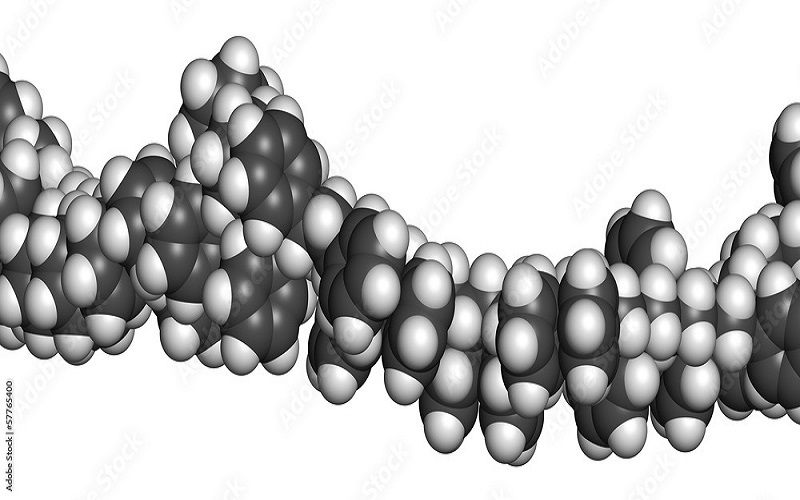
Applications of PS injection molding
Plastic injection molding is a versatile manufacturing process that has been widely used in various industries such as automotive, medical, consumer goods, and packaging.
Polystyrene is a commonly used material in the manufacturing industry, widely applied to various consumer goods such as kitchen appliances, toys, and garden furniture. It can be molded into different shapes and sizes according to specific purposes, making it the preferred choice for many manufacturers. For products that require higher durability, high-impact polystyrene (HIPS) is usually chosen.
Due to its lightweight, low cost, and ability to be formed into rigid and foam products, PS is extensively used in the packaging industry. This includes food packaging like yogurt containers, disposable cutlery, and foam trays.
General-purpose polystyrene has a transparent, glass-like appearance and is commonly used in laboratory vessels and medical equipment such as petri dishes, test tubes, and diagnostic components.
Meanwhile,polystyrene is a commonly used material in the automotive industry, used to manufacture various components such as dashboards, knobs, interior decorative parts, and energy-absorbing parts. By using polystyrene injection molding, manufacturers can produce these components with high precision and efficiency, ensuring top-notch product quality.

Conclusion
In conclusion,polystyrene (PS) injection molding is a versatile manufacturing process that is widely used for packaging, consumer products, electronics, medical devices, insulation, and automotive parts due to its cost-effectiveness, ease of processing, and a variety of properties such as transparency and durability.
These are general guidelines. Specific requirements may vary depending on factors such as part complexity, production volume and quality standards.
Therefore, it is necessary to look for a good and reliable PS injection molding company to determine the best approach for your specific application.
FOWMould, as a leading company in China’s injection molding industry, offers one-stop plastic injection mold services from mold design to manufacturing.
In the field of PS injection molding, FOWMould has abundant experience and mature technical expertise to deliver the highest quality PS injection molded products. If you require injection molding services, FOWMould would be your ideal choice.
